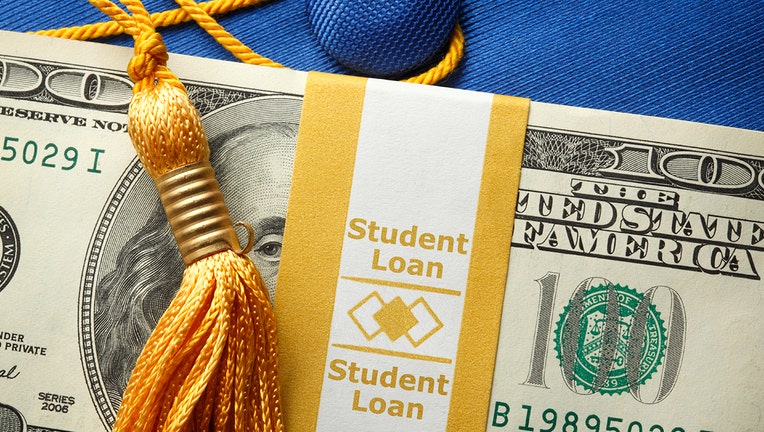Fed's report of positive economic growth could bring end to COVID-era forbearances

The economy is improving and many COVID-era forbearance periods are coming to an end. What does that mean for your student loans? (iStock)
The Federal Reserve recently released its Beige Book report, which showed an uptick in U.S. economic activity in April and May. The Fed described it as a "moderate pace" and said the economy was growing at a faster rate than the previous period due to increased coronavirus vaccination rates and relaxed social distancing measures.
Some economists, however, are beginning to wonder if COVID-era protection programs are now doing more harm than good. Half of all states have already decided to terminate President Joe Biden’s unemployment benefits early. And as the economic recovery continues, programs like student loan forbearance could soon come to an end.
Visit Credible to find out what your options are for keeping your payments low and to compare interest rates across multiple lenders.
HOW TO DETERMINE THE INTEREST YOU PAY ON STUDENT LOANS
Jobs and wages on the rise
Reports of labor shortages were more widespread across sectors and skill levels than the last Fed report. As firms looked to ramp up their hiring efforts, they came across barriers including generous unemployment benefits, childcare responsibilities and safety concerns. Amid this struggle, more companies offered signing bonuses, and enhanced recruiting efforts were mentioned with increased frequency. Some hourly workers saw wage increases of up to 30%, too.
"Labor demand strengthened but many firms reported difficulties in hiring and retention," the report stated. "Staffing firms reported high demand for labor across a range of sectors. Retail headcounts were level despite accelerating labor demand, as firms – especially restaurants – faced pronounced labor shortages. Manufacturers described ambitious hiring goals: one planned to hire 10,000 workers and another had open positions equal to more than 10% of total staff."
The Fed report showed staffing levels increased at a relatively steady pace, with two-thirds of districts reporting modest employment growth and the remainder indicating employment gains were moderate. As job openings and opportunities increase, the government will likely begin to roll back forbearances instated to help homeowners pay their bills while the economy was shut down.
Mortgage forbearance periods are ending, with some having exited forbearance in April. Others, too, will soon see their forbearance end in September. If your mortgage forbearance period is ending and you want to see what options are available to lower your home loan payments, contact Credible to speak to a home loan expert and get all your questions answered.
Options such as the Federal Housing Finance Agency's temporary appraisal flexibility due to the COVID-19 pandemic recently expired, and it was determined after the last extension of selling flexibilities that they'd all no longer be necessary due to low usage.
Next on the list? Student loan forbearances.
SHOULD I REFINANCE? HOW TO KNOW IF IT’S THE RIGHT TIME
Student loan borrowers prepare for a return to payments
On March 20, 2020, the office of Federal Student Aid began providing temporary relief on federal student loans including suspension of loan payments, stopped collections on defaulted loans and a 0% interest rate. It was later put into law through the CARES Act, and although the date was extended several times, it's now set to expire on Sept. 30, 2021.
There has been much talk about whether there will be yet another extension, but with other COVID-era forbearance programs drawing to a close and the economy improving, the chances are less likely.
Of course, payment suspensions of payments and 0% interest only applied to federal student loans, but some private student lenders allowed their borrowers to request forbearance. As these periods end, borrowers may want to look at other options for lowering their student loan payments, such as refinancing. Visit Credible to calculate how much you could save on your monthly payment.
BIDEN'S BUDGET EXCLUDES STUDENT LOAN FORGIVENESS, SO WHAT SHOULD YOU DO WITH COLLEGE DEBT?
Borrowers of federal student loans may want to think twice about refinancing, however, as refinancing out of such a loan would result in them losing protections like income payment protections or any future student debt forgiveness.
As forbearance programs draw to a close, some borrowers will once again need to resume making payments on their student loans. But there are still options to lower the monthly payments on your private student loans. Check out Credible to compare rates and student loan lenders without affecting your credit score.
Have a finance-related question, but don't know who to ask? Email The Credible Money Expert at moneyexpert@credible.com and your question might be answered by Credible in our Money Expert column.

